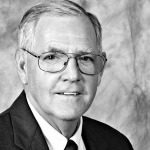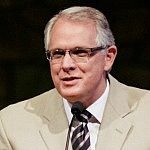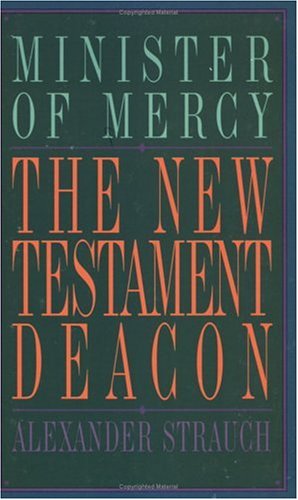Quotes about Deacons
Deacons, too, fill a New Testament office, one rooted in Acts 6. While any absolute distinction between (deacons and elders) is difficult, the concern of the deacons are the practical details of church life: administration, maintenance, and the care of church members with physical needs.
Nine Marks of a Healthy Church, Crossway, 2000, p. 217. Get this book!
What may we observe about deacons in Acts 6:1-7?
1. Their work was practical in nature.
2. Their name also denotes the practical nature of their work. They are servants. But practical work is spiritual work when done for Christ and the kingdom.
3. Their objective was to relieve the elders (originally the apostles) for the ministry of the Word, prayer, and oversight of the church.
4. They were to be accountable to the Elders (“whom we may put in charge”).
5. Their work was assigned and was not related to decision-making for the church as a whole.
6. Some deacons were also gifted in other areas of ministry and were at liberty to use their gifts. Stephen and Phillip, for instance, were deacons who also had other gifting. As deacons, however, they functioned in a practical way. Deacons are not limited to practical service, but must be engaged in practical service to be deacons.
The Function of Deacons, Christian Communicators Worldwide, www.CCWtoday.org. Used by Permission.
Paul and Peter listed and described specific “functions” for elders/overseers… God’s people in “every tribe and language and people and nation” (Rev. 5:9) and at any period in history need oversight, teaching, admonishing, and prayer. However, the specific “functions” for the deacons are never spelled out in detail – except the one that is inherent in their title – to “serve” (diakoneo). The generic “function” must be fleshed out in various ways from place to place at different points in time and history…as they assist the elders/overseers in carrying out their shepherding responsibilities.
Elders and Leaders, Moody, 2003, p. 103, 102. Get this book!
William Olney and Joseph Passmore…were deacons for many years at London’s Metropolitan Tabernacle during the pastorate of Charles Haddon Spurgeon. Their busy stewardship of service involved the administration of almshouses, orphanages, relief missions, training schools, retirement homes, tract societies, and colportages.
George Grant The High Calling of Service, Tabletalk, May 2008, p. 68, Used by Permission.
The special purpose of the deacon is found in Acts 6:1–7; they assist the elders in the ministry to the poor and widows (mercy ministry) so the elders can devote themselves to the ministry of prayer and the Word. As the name implies in the Greek, the deacons’ primary function is that of service. They perform their duties under the oversight of the elders (Howard Davis).
Howard Q. Davis Jr. We Don’t Need Supermen, Tabletalk, July 2008, p. 65. Used by Permission.
Deacons…serve to care for the physical and financial needs of the church, and they do so in a way that heals divisions, brings unity under the Word, and supports the leadership of the elders. Without this practical service of the deacons, the elders will not be freed to devote themselves to praying and serving the Word to the people. Elders need deacons to serve practically, and deacons need elders to lead spiritually (Mark Dever and Paul Alexander).
The Importance of Elders, taken from The Deliberate Church, © 2005, Crossway Books, a division of Good News Publishers, Wheaton Illinois 60187, p. 132, www.crosswaybooks.org.
If deacons cannot be trusted they ought not to be deacons at all, but if they are worthy of their office they are worthy of our confidence.
One of the quickest ways for a pastor to raise needless questions about his integrity, to become burdened with things unnecessary, and to be tempted to treat members with partiality is to become involved in the church’s finances. Though the elders are ultimately responsible, the day-to-day affairs are best left to the deacons.
Practical Wisdom for Pastors, Crossway, 2001, p. 108. Get this book!
Here are just a few of the tasks [the deacons] can handle for the church:
1. Collect, account for and distribute the offerings.
2. Maintain the physical properties of the church – buildings, grounds, vehicles, etc.
3. Care for the widows, orphans and other needy members of the body.
4. Pay the church bills.
5. Supervise the benevolence program of the church.
6. Determine the salaries and benefit programs for the church staff.
7. Purchase and supervise the church’s insurance policies.
8. Create and maintain church budgets.
9. Provide care for those members who have physical and financial needs.
10. Supervise building programs.
11. Usher and otherwise assist at the services.
12. Assist the elders in the distribution of the Lord’s Supper.
13. Provide transportation for those members who are not mobile.
Life in the Body of Christ, Founders Press, 2006, p. 164-165, www.founderspress.org. Used by Permission. Get this book!
It is amazing to me how many good deacons try desperately to be elders because they’ve concluded that there’s greater impact or status at the elder level. The result is a person carrying leadership burdens he was never gifted to bear, while the need for godly deacons goes unmet.








